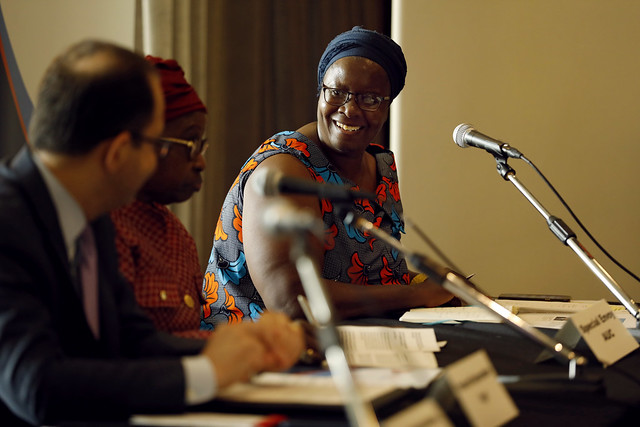
Image Credit: UN Women
Every time that we start a negotiation, we begin with the best of intentions. It really does not matter who we are negotiating with. The other side can be from down the road or from around the world, we simply want to reach a good deal with them. However, when the other side comes from another culture, problems can arise in our negotiations. Even with a common language and the best of intentions, negotiators from different cultures face unique challenges no matter what negotiation styles or negotiating techniques are being used. What we need are solutions for avoiding intercultural barriers when preparing for negotiation between sides from different cultures.
Take Time To Research The Other Side’s Background And Experience
When you know that you’ll be negotiating with someone who comes from a culture that is different from yours, you’ve got some work to do. To help with overcoming cultural barriers, do some homework to learn who the other side will be and find out some details about their background and experience. If the other side has international negotiating experience, you can assume that any type of cultural stereotyping likely to create new communication difficulties. If you have trouble getting information about the other side, ask someone with contacts at that firm or organization to make inquiries for you. Make sure that the intermediary understands that they are not authorized to make any commitments on your behalf.
Get Help From An Adviser From The Other Side’s Culture
Let’s face it – a different culture can be like a whole different world to us. We need to know what we don’t know. For that matter, if you discover that the person with whom you are likely to be negotiating has little or no international or cross-cultural experience, consider enlisting someone from his culture to serve as your assistant. You want your negotiation to go smoothly and so rather than deferring to this adviser during talks, plan out signals in advance to indicate when you should take a break to get additional advice from them. By using an outsider who understands the culture of the other side they can help you size up the situation, coach you as needed, and even jump in if they feel you have made an egregious error or misinterpretation.
Pay Attention To The Negotiation Dynamics
The key to any successful negotiation is communication. What this means for you is that during your negotiation you need to listen very carefully to what the other side is saying. If at any point in time you’re unsatisfied with the answers you receive, you need to reframe your questions and try again. In the case that you’re unsure about what the other side said, repeat what you think you heard. You should not be embarrassed about doing any of this because it’s safe to assume that people living and working in different cultural settings often view or interpret the same events differently. As a negotiator you need to realize that in our era of globalization, it’s true that we have more in common on the person-to-person level than you might expect. Remember not to ignore your intuition, and mind your manners.
What All Of This Means For You
Conducting a principled negotiation can be a difficult task. When we find ourselves sitting across the negotiating table from a person who comes from a different culture, a tough task just got a whole lot more difficult. No matter how clearly we think that we are communicating, there is a very real possibility that something is going to get garbled and both sides are going to end up being confused and not being able to reach a deal. When we find ourselves in a situation like this, we need to change how we negotiate.
Most negotiators recognize when they need technical or legal expertise to proceed with a deal-making interaction. Similarly, cross-cultural negotiators should realize that they might well need solutions for avoiding intercultural barriers, such as help in sizing up the situation in advance, or interpreting the signals and norms that could make or break a negotiation in a cross-cultural context.
The next time you find yourself sitting down to a negotiation with someone who comes from a culture that is different from yours, understand that additional preparations may be required. You need to take the time before the negotiations to start to prepare yourself for success. If you can come to the table prepared to overcome any issues that different cultures may create, then your chances of reaching a deal with the other side have suddenly become much more likely.
– Dr. Jim Anderson
Blue Elephant Consulting –
Your Source For Real World Negotiating Skills™
Question For You:
P.S.: Free subscriptions to The Accidental Negotiator Newsletter are now available. Learn what you need to know to do the job. Subscribe now: Click Here!
What We’ll Be Talking About Next Time
Ah, the good cop / bad cop tactic. You know, we’ve seen this used in so many different TV shows and movies that you would sorta think that everyone would recognize it when it was being used on them by now. However, that’s where you would be wrong. It turns out that this tactic is still very popular as one of many negotiation styles and negotiating techniques and is very effective. During any negotiation that you are part of, the other side may have two of their people playing different roles. One seems as though they are eager to help you while the other is aggressively trying to get the best deal for them. Guess what – the good cop / bad cop tactic is being used on you.

